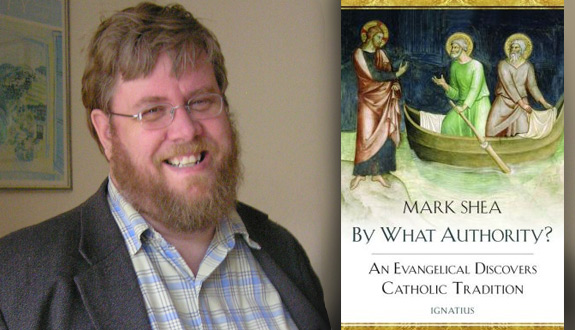“I do not understand people who struggle to understand this Pope,” begins Mark Shea over at patheos.com/blogs/markshea. “I don’t really believe they find him ‘confusing’. I think they just don’t want to listen to him.”
Perhaps Mark overreaches in saying that everything people need to know about Francis is summed up in the words “he has preached good news to the poor”, but he’s surely spot on about Pope Francis’ more prominent opponents, if not those they’ve succeeded in baffling.
“His mortal enemies are people who either (a) dislike the Church’s teaching on our duty to the poor or (b) dislike evangelism because it brings people they regard as riffraff into a Church they want to make an accessory to their views on money and power and race and aesthetics and not face it for what it is: the body of the living Christ,” he says.
It’s been bizarre of late to see Mark harried by an online mob screaming that he’s an enemy of the Church. Bizarre, I say, because not merely is Mark – in By What Authority? An Evangelical Discovers Catholic Tradition – the author of perhaps the best popular introduction to the Tradition of the Church, but because anybody who’s been paying attention can see he’s held fast to the Church and its teaching ever since.
***
That a striking number of Catholics who clearly despise Peter’s successor have an irksome habit of defending or excusing profoundly anti-Catholic political stances is something few people with their eyes open can have missed. On this it’s worth reading, say, patheos.com/blogs/scottericalt about how St John Paul identified deportation as an ‘intrinsic evil’ and on an outspoken US priest who has “abandoned Christ to shill” for Mr Trump.
***
Those interested in how the Catholic commentariat has changed of late, such that longstanding champions of the Faith have been left aghast at onetime allies, could do worse than read Heidi Schlumpf’s four-part series at ncronline.org beginning with ‘The rise of EWTN: From piety to partisanship’.
Sure, the National Catholic Reporter is hardly a paragon of impartiality, but even so, the series is a valiant attempt at showing how “a television outlet once devoted to expressions of Catholic piety and conservative catechesis and apologetics has grown into a truly influential media empire, well connected to Republican politicians and the Trump White House”.
Forces
“EWTN, where the ‘Catholic perspective’ is unabashedly partisan, has also become the media star in a web of connections including wealthy conservative Catholic donors and some of the most public anti-Pope Francis forces in the Catholic world,” the introductory article continues.
There’s a lot to chew on there, not least for those of us baffled by Catholic media outlets becoming the playthings of people whose agendas and attitudes are anything but Catholic. Read it critically, but do read it.
***
Who exactly are our brothers and sisters?
“Can we as Catholics call Muslims our brothers and sisters?” asks Steven Greydanus in a fascinating article over at ncregister.com. “How about Jews? Other non-Christians? In what sense?”
It’s an important question, especially in a world where we bump off each other more than we ever did, where Catholics shy away from criticising racist and sectarian rabblerousing, and where prelates like Cardinal Raymond Burke confuse people by falsely claiming – utterly contrary to Church teaching – that Christians and Muslims do not worship the same God.
Recalling a post at patheos.com/blogs/standingonmyhead where Fr Dwight Longenecker said “I simply don’t think it does much good to refer to Muslims as our ‘brothers and sisters’”, Deacon Greydanus minces no words.
“Jews, Muslims, Hindus, atheists are our brothers and sisters,” he says. “Even if many of them reject us, we don’t reject them. The whole human race is one family, all born of Adam, all redeemed in Christ, all sharing the common fatherhood of God, though not brotherhood in Christ.”
Powerful words, and ones which to be understood fully require holding certain truths in tension. Rev. Greydanus does a superb job in explaining not just how this can be done, but how this must be done.


 Greg Daly
Greg Daly Mark Shea
Mark Shea 